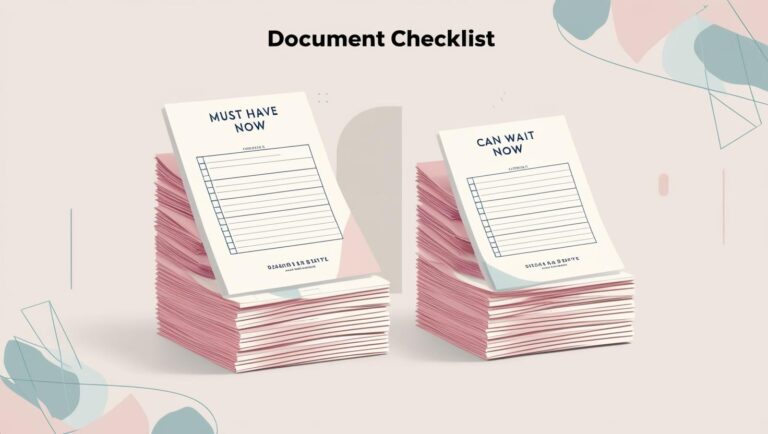What HR Actually Means in a Small Business: Beyond Hiring and Firing
When most small business owners hear “HR,” they think hiring, firing, and payroll headaches. They picture large corporate teams with policies, compliance manuals, and endless paperwork. But the truth is, HR in a small business is nothing like that. It’s not a luxury, a tick-box exercise, or a bureaucratic obstacle. It’s the engine that keeps your people running smoothly, your operations legal, and your business sustainable.
In small teams, HR isn’t about process for process’s sake. It’s about practical strategies that allow your business to grow without chaos. It’s about ensuring people know what’s expected, can work together effectively, and want to show up every day — all while keeping you out of legal trouble.
Let’s dive into what HR really means in a small business, why it matters, and how to make it work for you — even if you don’t have a full HR department.
Compliance Is the Minimum, Not the Goal
The first misconception about HR is that it’s all about compliance. Yes, you need contracts, leave policies, and a working knowledge of labour laws. That’s non-negotiable. Without them, your business is vulnerable to disputes, fines, or worse.
But compliance alone isn’t HR. Compliance is the foundation, not the house. It protects you from legal risk, but it doesn’t make your business functional, productive, or enjoyable to work in.
True HR is proactive. It anticipates problems, clarifies expectations, and creates structures that make daily operations smoother. It’s the difference between a team that shows up confused and frustrated, and a team that knows what to do and why it matters.
For example, consider leave policies. A basic policy might meet legal requirements, but a good HR approach explains not only how much leave employees get, but also how to request it, what happens during peak business periods, and who covers their tasks while they’re away. This clarity reduces confusion and friction, and it demonstrates that HR is about more than just avoiding CCMA claims — it’s about growing a positive workplace culture.
Recruitment Is More Than Posting a Job
Hiring in a small business is high stakes. Every new hire can make or break your team’s dynamic. You don’t need a large recruitment budget, a fancy Applicant Tracking System, or a professional headhunter. You need clarity, structure, and intentionality.
Start with a clear job description. Don’t just list tasks. Include the purpose of the role, how it connects to business goals, and the behaviours you value. This helps potential hires understand what success looks like and sets expectations from day one.
Screening should be straightforward but effective. Look beyond resumes and certificates. Ask yourself:
Can this person do the work?
Will they thrive in how our team does things?
Do their values align with the culture we’re building?
Interviews in small businesses are not just about testing technical skills. They’re about assessing adaptability, communication, and cultural fit. A technically perfect candidate who can’t collaborate or adapt may be worse than an average candidate with excellent soft skills.
For example, in a boutique marketing agency, a candidate who can juggle multiple projects, communicate clearly with clients, and ask for help when stuck is more valuable than someone with perfect Photoshop skills but zero team spirit. In small businesses, the human factor often outweighs technical expertise.
Performance Management Is Your Secret Weapon
Many small business owners avoid performance management, thinking it’s too formal or unnecessary. The result? Underperformance festers, expectations remain unclear, and frustration grows.
Performance management doesn’t need to be complicated. It’s not about yearly appraisals, scores, or rankings. It’s about creating regular touchpoints to clarify goals, celebrate progress, and course-correct before small issues become big problems.
A simple approach might include:
Goal setting worksheets to track objectives.
Monthly or quarterly feedback chats to discuss progress, challenges, and support needed.
Clear conversations about underperformance before it escalates.
In small businesses, underperformance shows fast. One person’s poor communication, missed deadlines, or lack of accountability can affect everyone. HR provides the framework to address these issues fairly, constructively, and consistently.
Consider a small design studio: a junior designer repeatedly misses project deadlines. With a structured HR approach, the manager can identify gaps, set clear expectations, provide guidance, and monitor improvement. Without HR, these issues could lead to client dissatisfaction and tension within the team — all avoidable with simple, intentional performance management.
People Leave — But They Don’t Have To Leave Angry
Employee turnover is inevitable, but how people leave matters. In small businesses, bad exits can disrupt operations, damage morale, and harm your reputation. Clear HR policies make transitions smoother.
Documented notice procedures, handover steps, and exit interviews ensure knowledge is transferred and relationships are maintained. Exit interviews aren’t just administrative; they provide insights into why people leave, highlighting patterns that you can address proactively.
For example, if multiple employees leave due to unclear role expectations or inconsistent feedback, this signals a gap in your HR practices. Identifying and addressing these gaps improves retention and reduces future turnover.
Even in a small team, structured offboarding reflects professionalism, preserves culture, and protects your brand. Clients and future hires notice when a business handles departures with care and clarity.
Training = Retention — And It Doesn’t Have to Be Fancy
Small business owners often assume they can’t invest in training because budgets are tight. The truth is, training doesn’t have to be formal, expensive, or certificate-driven. Effective training is about clarity, growth, and skill development.
Practical examples include:
Shadowing a senior team member: Let new hires observe experienced colleagues to learn processes and behaviours.
Task checklists: Clear instructions for daily tasks reduce errors and increase independence.
Mini “lunch & learn” sessions: 30-minute discussions on topics like customer care, email etiquette, or problem-solving.
These approaches cost little but create measurable impact. Training doesn’t require a Learning & Development department; it requires intention. It helps employees feel competent, supported, and prepared, which directly improves retention.
HR Helps You Grow — Without Losing Your Mind
Most small business chaos stems from unclear expectations, overwork, or poor communication. HR addresses these issues with simple, practical tools:
Job clarity: Clear roles prevent overlap, confusion, and frustration.
Workload visibility: Knowing who is responsible for what prevents bottlenecks and burnout.
Clear, human policies: Simple guidelines for leave, behaviour, and performance reduce uncertainty.
Implementing these elements doesn’t mean creating hundreds of pages of HR policy manuals. Even a few well-thought-out documents and processes can drastically improve operations.
When you finally hire your first HR professional — or outsource HR functions — you’ll benefit from starting early. You’ll have structure, documentation, and systems in place, making the transition smooth and scalable.
Examples of Practical HR in Small Business
Example 1: A Cafe with Six Employees
The owner noticed recurring tension between front-of-house staff and kitchen staff. By introducing simple HR practices — a shared shift schedule, a conflict-resolution protocol, and weekly team check-ins — the owner reduced miscommunication, improved morale, and boosted customer satisfaction. No fancy HR department, just consistent, intentional practices.
Example 2: A Boutique Digital Agency
With rapid growth, the team faced confusion over roles and project ownership. The founder introduced job descriptions, a monthly performance check-in, and a lightweight onboarding guide. Staff understood expectations, knew who to go to for questions, and were able to ramp up more quickly. Client deadlines improved, and stress levels decreased.
Example 3: A Small Retail Business
High turnover was affecting service quality. The owner implemented informal training sessions, shadowing for new hires, and a peer feedback system. Employees felt supported, developed skills faster, and stayed longer. Productivity increased without a formal L&D budget.
These examples show that practical HR doesn’t require a corporate structure. It requires thoughtfulness, consistency, and a focus on people.
The Bottom Line
HR in small businesses is not a corporate luxury. It’s not about filling forms or enforcing rules. It’s about creating clarity, structure, and trust so your team can thrive and your business can grow.
When done intentionally, HR:
Ensures compliance with labour laws.
Improves hiring outcomes and cultural fit.
Supports performance management that actually works.
Reduces turnover and protects your reputation.
Develops skills and confidence in your team.
Allows the business to scale without chaos.
The key is practicality. HR doesn’t need to be complex. It doesn’t need a budget the size of a corporate department. It needs focus, consistency, and processes that actually help your people do their best work.
Think of HR as your small business operating system: it keeps the machinery running smoothly, prevents breakdowns, and allows you to innovate and grow without constantly firefighting.
You don’t need to hire a full HR team today. You need to start thinking intentionally about your people — their roles, expectations, development, and experience. Once you do, your team will be more engaged, your clients happier, and your growth less stressful.



